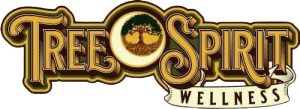What Is Delta-9-THC?
Delta-9-tetrahydrocannabinol (Delta-9-THC) is the primary psychoactive compound found in cannabis plants. It's the most abundant and well-known form of THC, responsible for the characteristic euphoric "high" associated with marijuana consumption. When people refer to "THC" generally, they are typically talking about Delta-9-THC.
How Delta-9-THC Works
Delta-9-THC produces its effects by binding to cannabinoid receptors throughout the body's endocannabinoid system (ECS). It has a particularly strong affinity for CB1 receptors, which are concentrated in the brain and central nervous system. This interaction alters the release of neurotransmitters and temporarily affects:
- Mood (euphoria, relaxation)
- Memory (short-term impairment)
- Perception (altered senses)
- Appetite stimulation ("the munchies")
- Pain perception (relief)
Delta-9-THC vs. Other Cannabinoids
Delta-9 vs. Delta-8-THC
- Potency: Delta-9 is approximately 2x more potent than Delta-8
- Effects: Delta-8 produces a milder, more clear-headed high with less anxiety
- Source: Delta-8 occurs naturally in minimal amounts and is typically synthesized from CBD
Delta-9 vs. THCA
- Psychoactivity: THCA is non-psychoactive; Delta-9 is psychoactive
- Conversion: Heat converts THCA into Delta-9-THC through decarboxylation
- Source: THCA is abundant in raw cannabis; Delta-9 forms after heating
Delta-9 vs. THCP
- Potency: THCP may be up to 10x more potent due to stronger receptor binding
- Availability: THCP occurs in much smaller quantities naturally
Effects and Benefits of Delta-9-THC
Desired Effects:
- Euphoria and relaxation
- Enhanced sensory perception
- Increased creativity and laughter
- Appetite stimulation
- Pain relief
Potential Side Effects:
- Anxiety or paranoia (especially at high doses)
- Dry mouth and red eyes
- Increased heart rate
- Short-term memory impairment
- Dizziness or coordination issues
Therapeutic Applications:
- Chronic pain management
- Nausea and vomiting reduction (particularly for chemotherapy patients)
- Appetite stimulation in wasting syndromes
- Muscle spasticity reduction in multiple sclerosis
- Sleep aid for insomnia
Consumption Methods
1. Inhalation (Smoking/Vaping)
- Onset: Within minutes
- Duration: 2-3 hours
- Bioavailability: 10-35%
2. Oral (Edibles, Oils)
- Onset: 30 minutes to 2 hours
- Duration: 4-8 hours
- Bioavailability: 4-20%
3. Sublingual (Tinctures)
- Onset: 15-45 minutes
- Duration: 4-6 hours
- Bioavailability: 20-35%
4. Topicals (Creams, Patches)
- Onset: Varies (minutes to hours)
- Duration: Varies
- Effects: Typically localized without psychoactivity
Legality of Delta-9-THC
Federal Status:
- Marijuana-derived: Illegal (Schedule I controlled substance)
- Hemp-derived: Legal if containing ≤0.3% Delta-9-THC by dry weight
State Regulations:
- Recreational use legal: 24 states + DC
- Medical use legal: 38 states + territories
- Fully illegal: Limited states
⚠️ Important: The 2018 Farm Bill created a legal loophole for hemp-derived Delta-9-THC products (typically edibles) that contain ≤0.3% THC by dry weight. However, many states have restricted or banned these products.
Dosage Guidelines
For Beginners:
- Inhalation: 1-2 small puffs (wait 15 minutes before more)
- Edibles: 2.5-5mg (wait 2 hours before more)
For Experienced Users:
- Inhalation: Individual tolerance varies
- Edibles: 10-50mg+ (depending on tolerance)
Microdosing:
- 1-2.5mg every 3-4 hours for functional benefits without strong intoxication
FAQs About Delta-9-THC
Q: Will Delta-9-THC make me fail a drug test?
A: Yes. Standard drug tests screen for THC metabolites, and Delta-9 consumption will result in a positive test.
Q: How long does Delta-9 stay in your system?
A: Detection windows vary:
- Blood: 1-2 days (occasional use); up to 30 days (chronic use)
- Urine: 3-15 days (occasional use); 30+ days (chronic use)
- Saliva: 24-72 hours
- Hair: Up to 90 days
Q: Can you overdose on Delta-9-THC?
A: While not lethal, consuming too much can cause significant discomfort including anxiety, paranoia, and vomiting. These effects are temporary but can be unpleasant.
Q: Is Delta-9 stronger than Delta-8?
A: Yes, significantly. Delta-9 is approximately twice as potent as Delta-8-THC.
Q: Are there any medical uses for Delta-9-THC?
A: Yes, it's FDA-approved in synthetic form (dronabinol) for treating nausea in cancer patients and appetite loss in AIDS patients. Whole-plant cannabis is used medically in many states for various conditions.
Safety Considerations
- Start low and go slow - especially with edibles
- Don't drive for at least 4-6 hours after consumption
- Avoid mixing with alcohol or other substances
- Purchase from licensed dispensaries that provide third-party lab testing
- Store securely away from children and pets
- Consult a doctor if you have pre-existing health conditions
The Future of Delta-9-THC
As cannabis research expands and legalization spreads, we're learning more about:
- Strain-specific effects and terpene interactions
- Long-term therapeutic applications
- Novel consumption methods and formulations
- Personalized dosing based on genetics and metabolism







